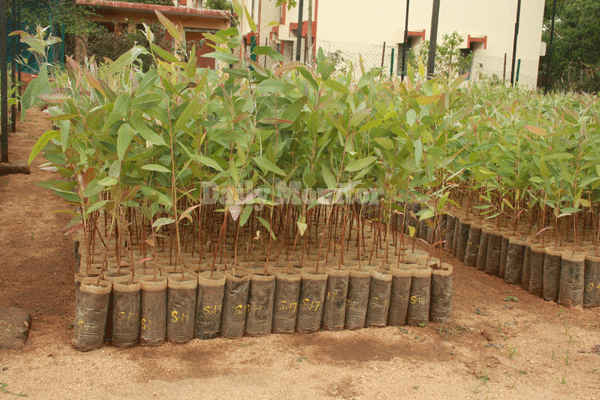NEMA saves mother planet and our posterity

Tree planting also helps reduce on chances of soil erosion. PHOTO/SHABIBAH NAKIRIGYA
What you need to know:
- In a string of policy and directive implementation, horse-trading and ingenuity, the authority has set the country on a path to sustainable green development.
‘…it’s the magic of 100 days…you only need to experience its sweetness, to believe it…it’s not another management buzzword…it works’…, a beaming NEMA official couldn’t contain her excitement while briefing the media and the country about the authority’s landmark achievements in a hundred days of their reorientation. And landmark they are, going by where our sins against Mother Planet had reached. But we are on the road to repentance and self-preservation.
In a string of policy and directive implementation, horse-trading and ingenuity, the authority has set the country on a path to sustainable green development.
First in the works was a soft long-term credit facility from the Ministry of Finance for the investors manufacturing kaveera. This financed their switching from the polluting, carcinogenic, earth-choking kaveera into healthy, biodegradable packaging materials. Over 80 percent of their raw materials are from recycled paper and natural fibres. This will soon be supplemented by harvests from the sisal regeneration scheme on bare hills, rangeland oases and highway road reserve boundaries.
The sisal is both utilitarian and aesthetic: it accentuates the greening programme where deciduous trees and fruit trees are planted along all highways across the country. Added to this is the kaveera de-mining project across cities and towns, whose soils and drainage had literally choked. Vast farmlands and freshwater streams are springing up in former wetland slums, the residents moving into high-rise 20-year mortgage condominiums, built by the country’s social security fund in the new urban settlement plan.
The reclaimed land, tilled and managed by the National City Management Authority, is demarcated into family level fields and allocated for horticulture, pulses and aquaculture, in a share-cropping plan. The early bird cities in this new plan are now marvels of refreshing sweet-scent verdures, attracting domestic and international tourists.
The fields are fertilised by organic manure from recycled domestic and institutional waste, thanks to the twelve recycling plants across the country.
‘…buoyed by our success in the pilot sectors, we tabled our proposal of mega electric buses to our partner MDAs in this sector, and we are already reaping the fruits. We piloted at three levels: intracity transport in the national capital, two upcountry cities and their hinterland, and highway routes from the capital to regional cities.
The initial batch of 1,200 buses is already on the road. This we achieved through a reorientation of the key agencies, where each concentrated on its core component-input in the bus manufacturing value chain: the innovators manufactured the electric engine, the chassis-cowl assembly was done by a different company sourcing components locally and regionally, while body building was outsourced to sector specialists… we actually attracted two regional bus builder companies, which set up three plants each, thus our current six plants building buses: 40-seaters for executive shuttles, 72 seaters for medium range and 180 seaters for urban intracity mass commuting. Not only are we reducing traffic congestion but we are witnessing decreasing carbon emissions… so far by 72 percent of the earlier levels.
The citizens hitherto employed in the small commuter vehicles have been absorbed by the new bus companies, while others were retooled into working in the emerging green sectors.
In the next 100 days, our focus will be on domestic and institutional cooking, where we are in advanced negotiations with an innovator to standardise bio-ethanol from sugarcane waste as the cooking fuel across the country; while a regional giant in electric motor cycles is already licenced to set up assembly of the green bikes here…these are exciting times for us, but more so, a foundation for our posterity…thank you all’…
Matsiko Kahunga, [email protected]




